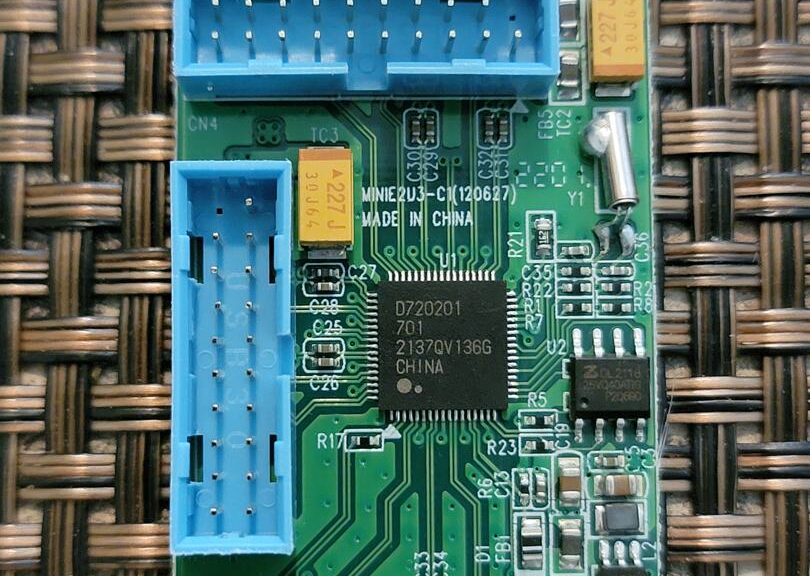
The IO Crest Mini PCI-Express USB 3.0 Super-Speed Host Controller Card (Renesas D720201)
Hi everyone,
Today, we will be seeing an interesting Mini PCI-Express Expansion Card that adds 2 USB 3.0 headers to a machine. When I say “interesting”, it is due to the fact that this is a very small PCI Express card. Usually, the Mini PCI Express slot in machines is used for a Wi-Fi card, but some companies manufacture other types of peripherals, and this is one of them.
Mini PCI Express slots is seen on most laptops before the M.2 slot became standard and is also present on some older desktop motherboards. In my case, my Jetway NF9G-QM77 motherboard has 2 Mini PCI Express slots, of which one can also be used as an mSATA slot.
Because I’m running Linux in this machine, using QEMU to virtualize Windows and passthrough some devices, this card is essential to dedicate a USB Controller to it. This is the main reason I got this card, which we will see below.
The IO Crest Mini PCI-Express USB 3.0 Super-Speed Host Controller Card packaging is simple, as it comes in a generic white box:

When we open it, we can see the entire package content:
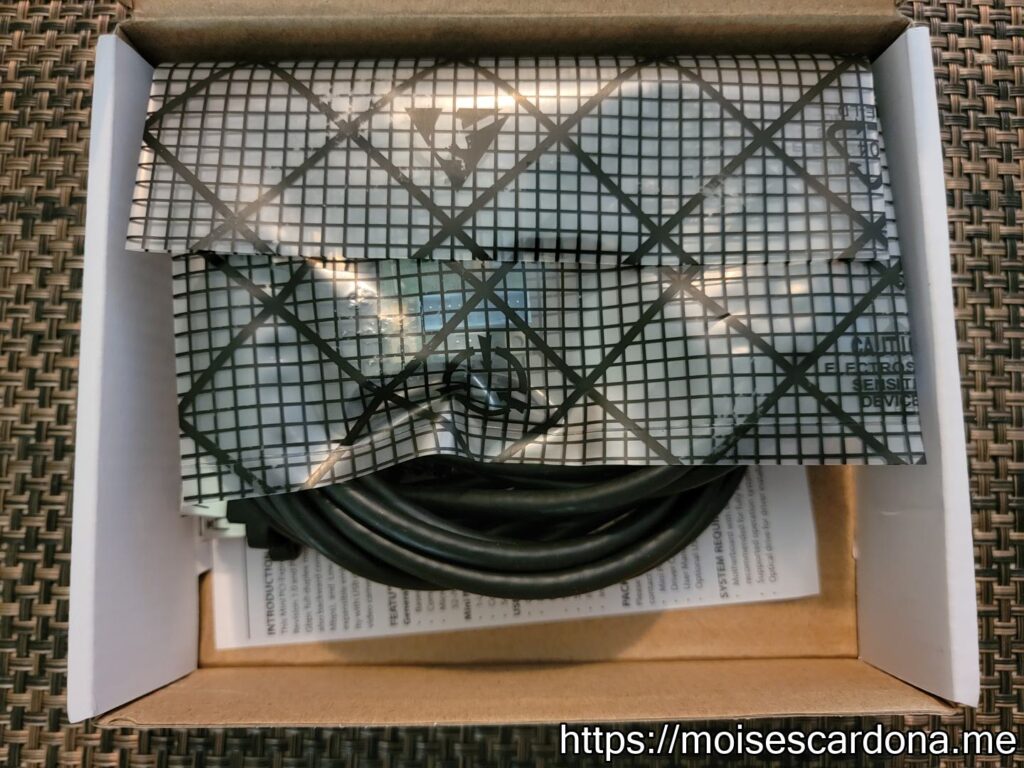
Included is the card, as well as 2 USB 3.0 header to 2 USB-A 3.0 ports cables. Additionally, it includes a Driver CD for older Windows operating systems and a simple instruction manual:
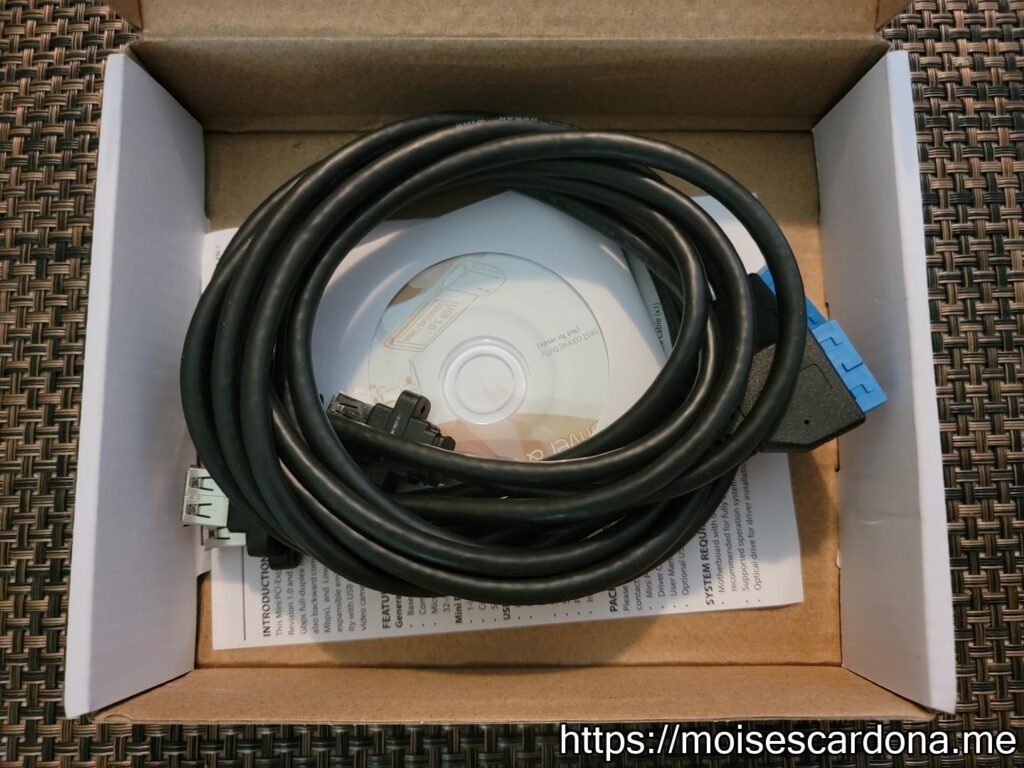
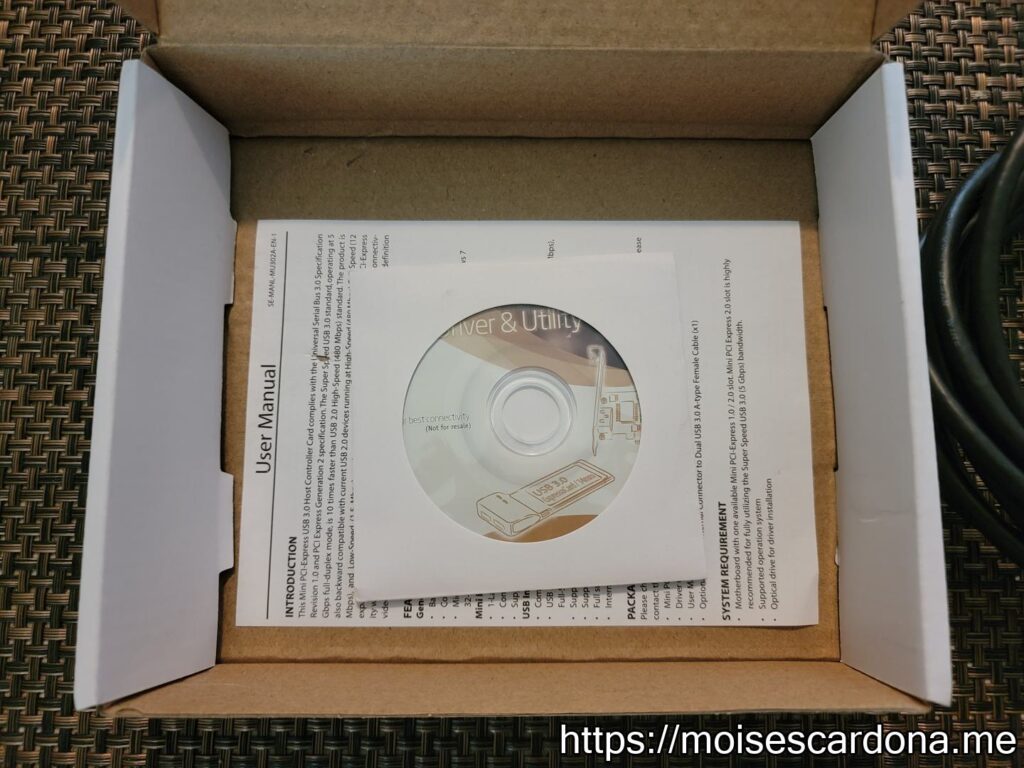
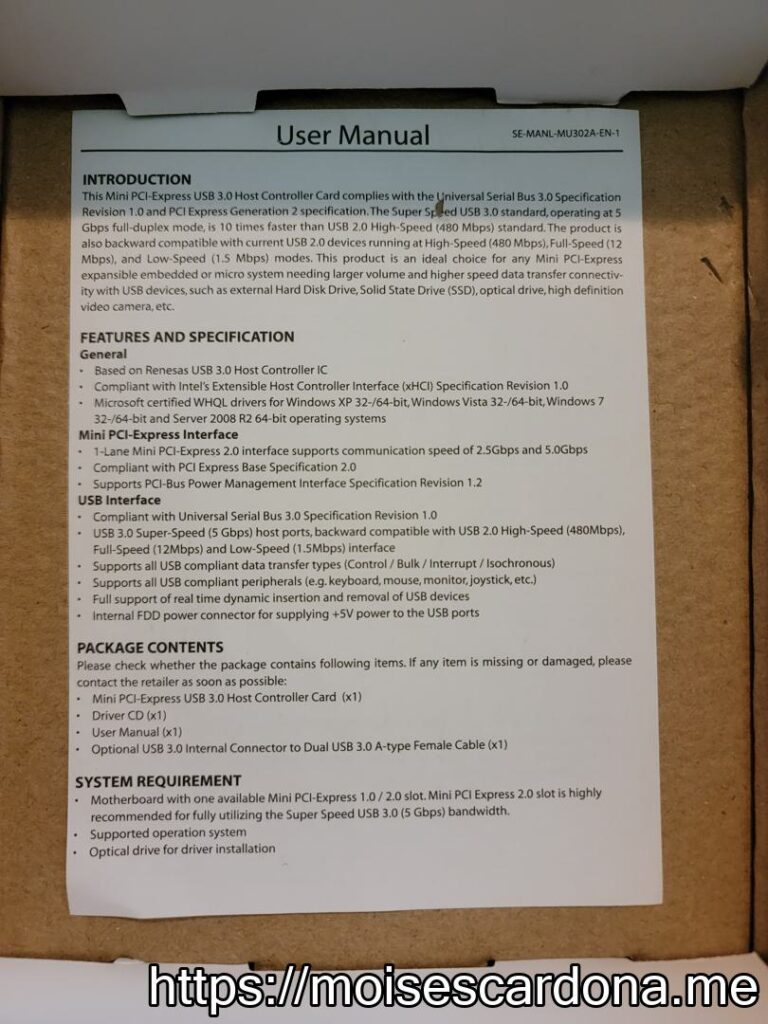
The card comes inside an anti-static bag:
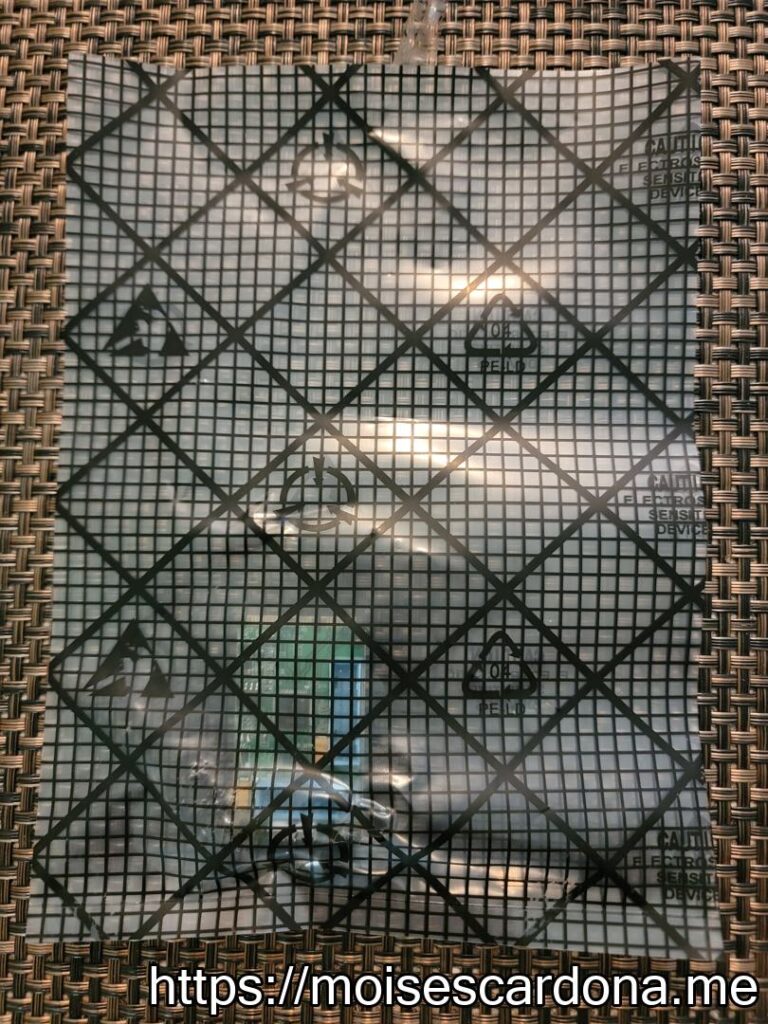
It is a full height Mini-PCI Express card. It has 2 USB 3.0 headers to connect the included USB 3.0 headers to USB-A ports, or you can use a USB 3.0 header cable that most modern PC cases have. To provide power to the USB ports, you need to use a Floppy FDD power adapter. Some Power Supplies may already have a Floppy power cable, but there are MOLEX and SATA variants that converts it to the Floppy power connector needed:
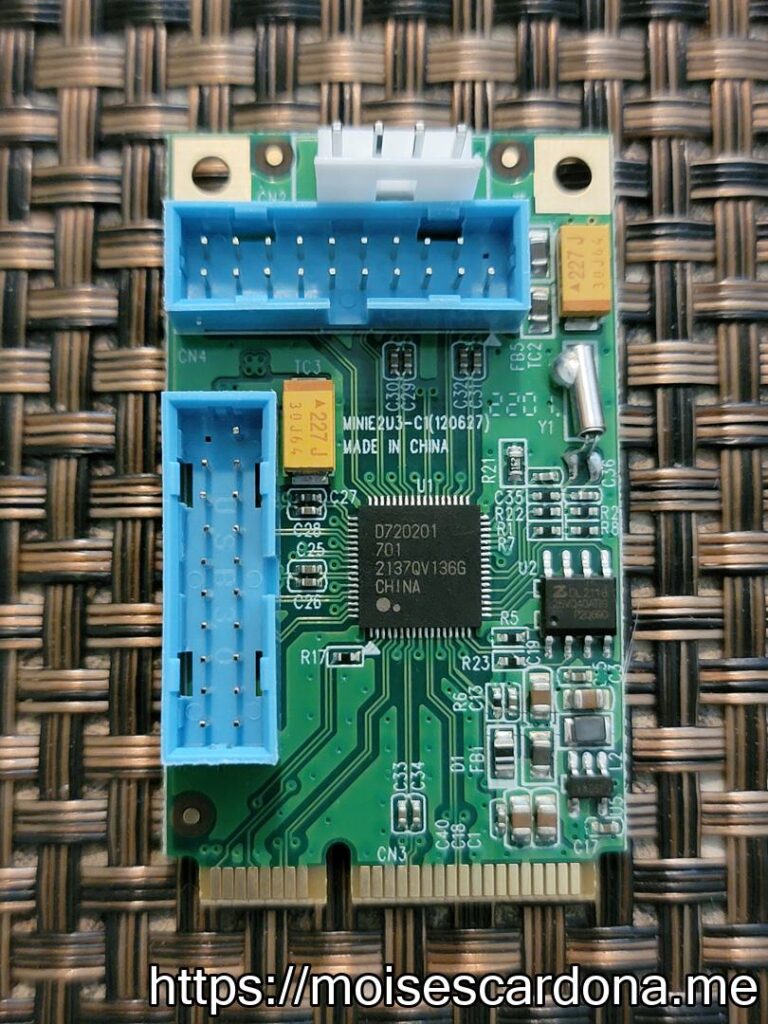
The card uses a Renesas UPD720201 chip. The actual model of this Mini PCI Express card is SD-MPE20215:
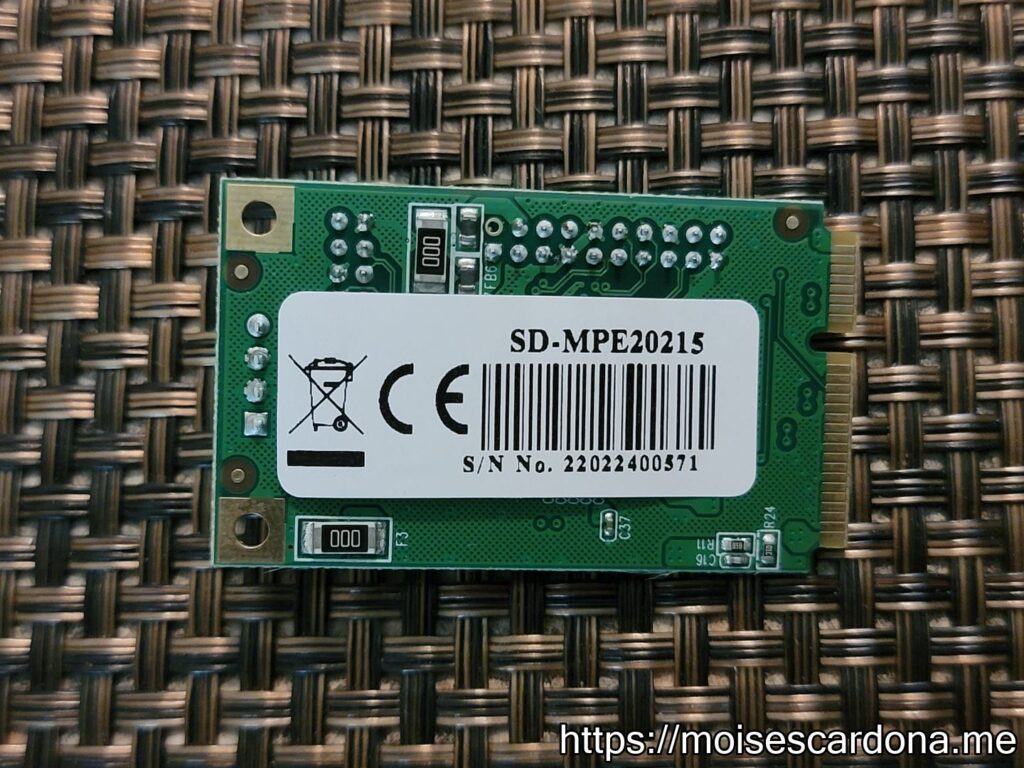
The included cables:
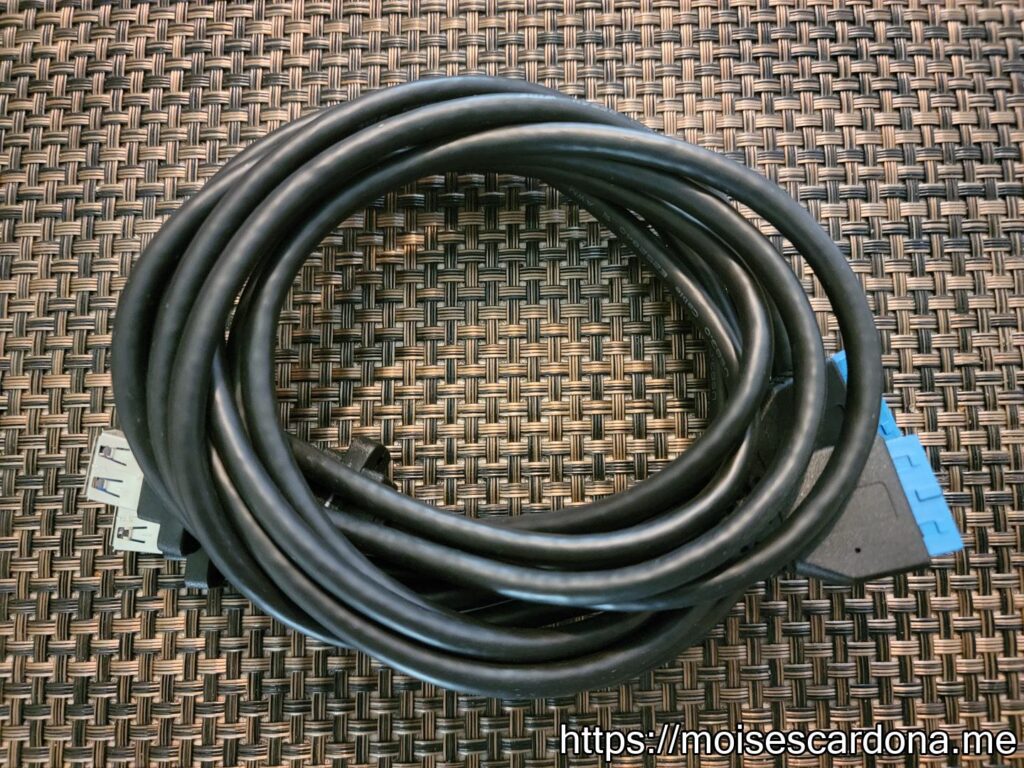
The included Driver Mini CD for older operating systems. Windows 11 uses the Microsoft generic USB 3.0 driver for this card:
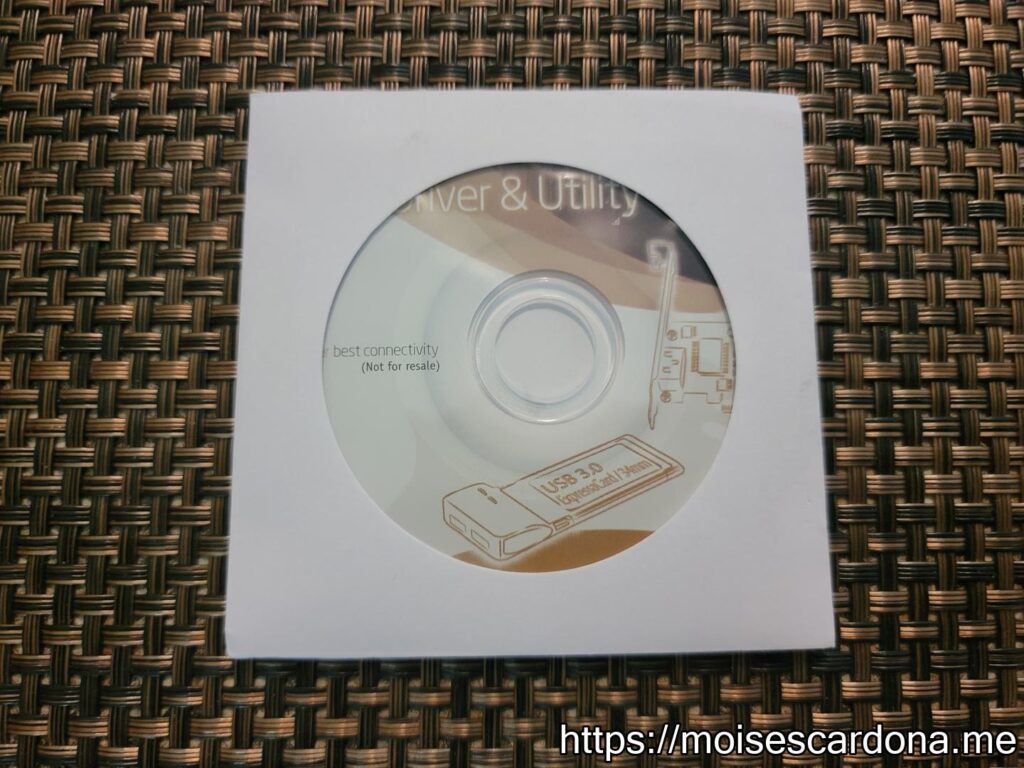
Below is the entire box content:
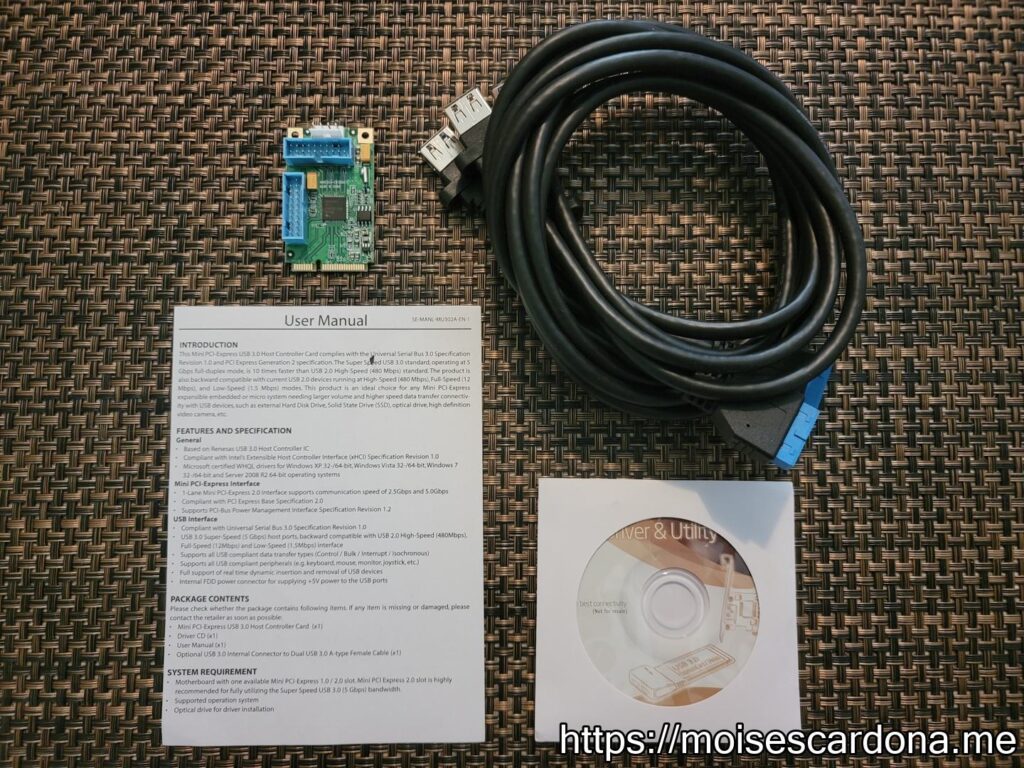
Card installed in the Mini PCI-Express/mSATA port in my Jetway NF9G-QM77 motherboard, with both USB 3.0 header cables connected as well as the Floppy cable adapter:
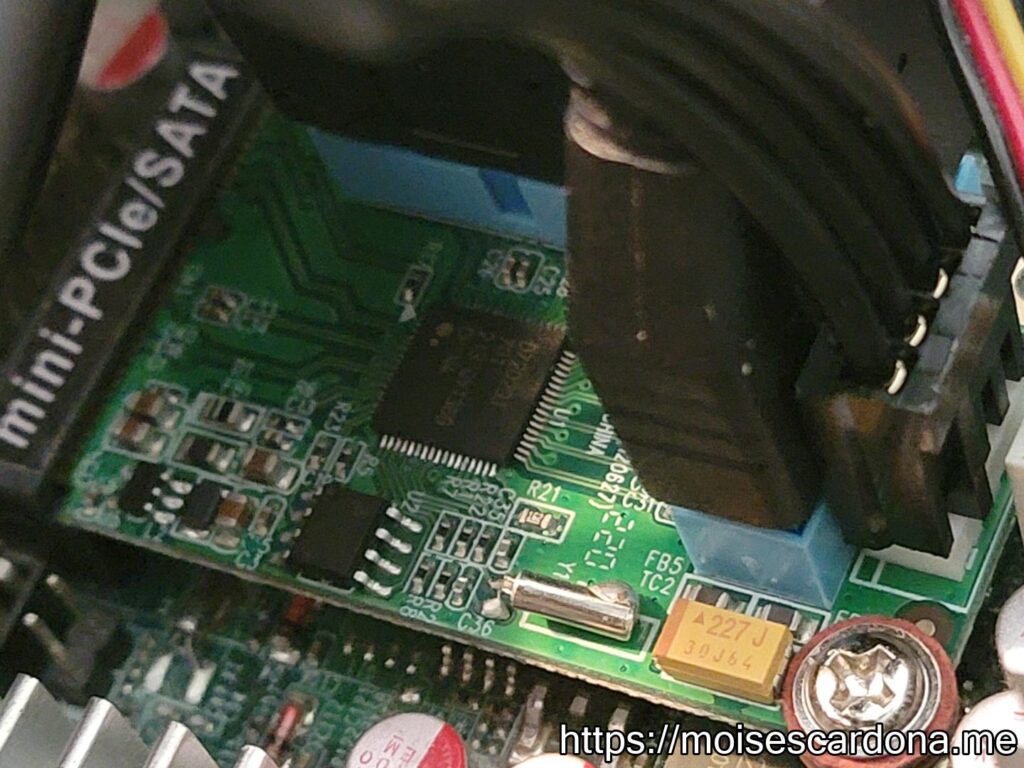
Finally, here is a look at the PC with the USB 3.0 cables. They are long:
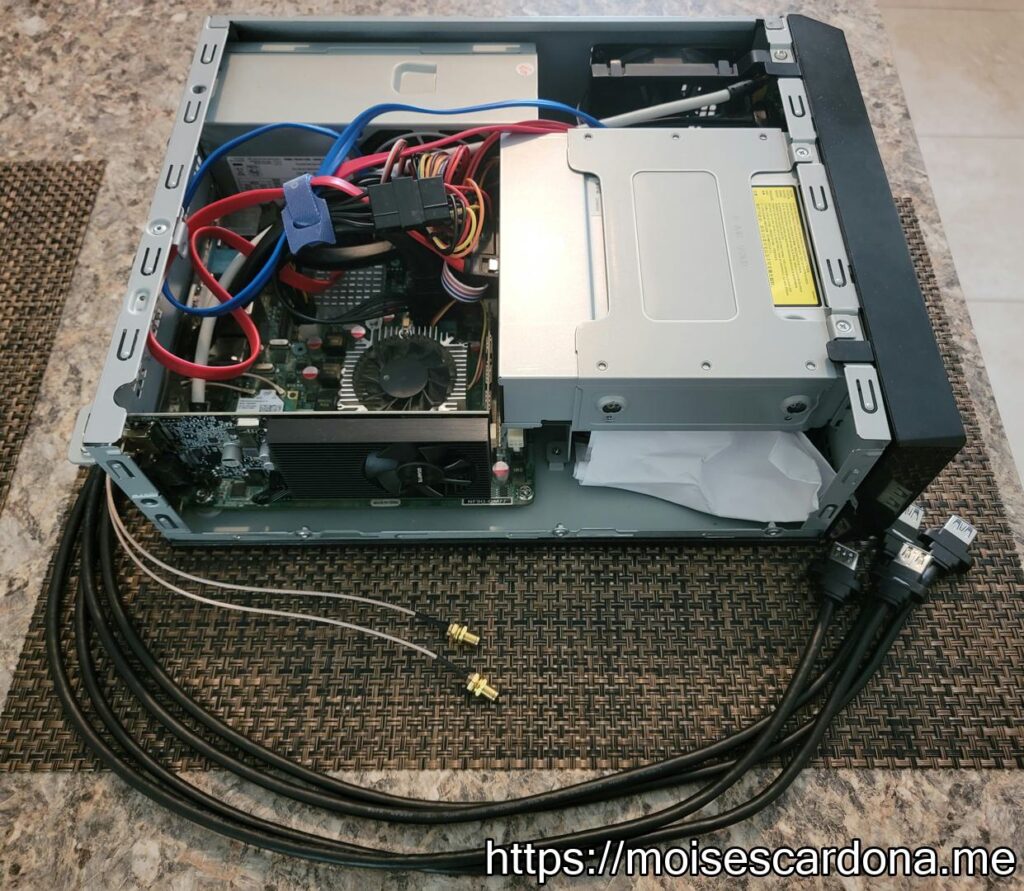
Linux detected this card immediately as Renesas Technology Corp. uPD720201 USB 3.0 Host Controller (rev 03):
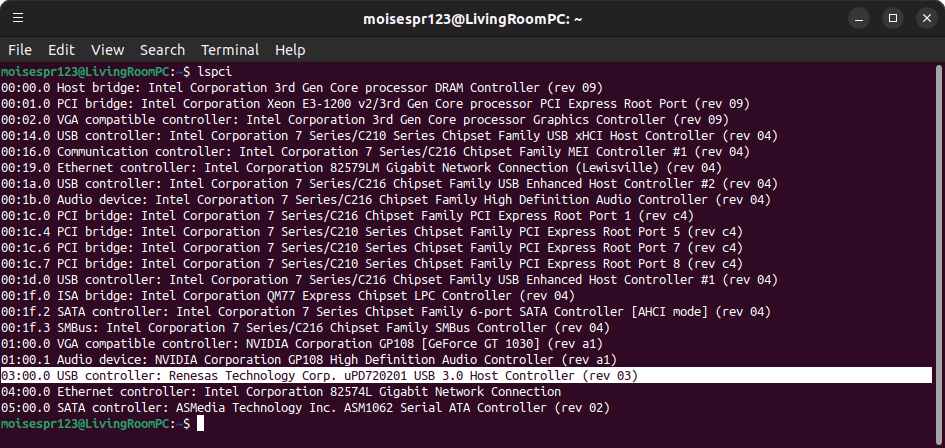
In Windows (Virtualized using QEMU/KVM), it is detected as Renesas USB 3.0 eXtensible Host Controller. It uses the Microsoft built-in driver:
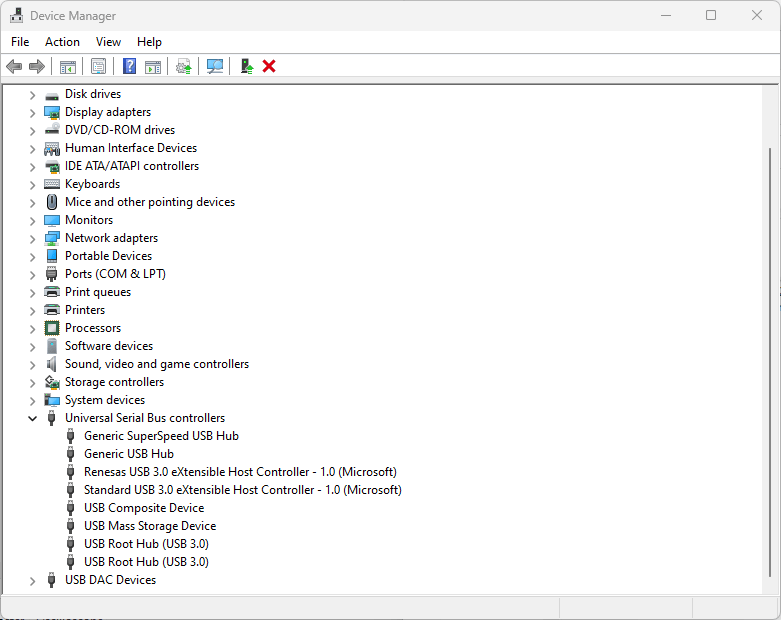
Conclusion
This Mini PCI Express to 2 USB 3.0 headers (4 USB-A 3.0 ports) is a nice way to expand our machine to add a dedicated USB controller card. Because Mini-ITX motherboards usually have a single PCI Express slot, this card is perfect if it includes a full height Mini PCI Express slot. In my case, my motherboard provides a Full Height as well as a Half Height Mini PCI Express slot, so this card is compatible in it. Mini PCI Express slots operates in x1 mode, which is enough for these specific kinds of cards.
Compatibility is nice in the latter versions of Windows. A Mini CD is included that provides drivers for older operating systems. I have not tried to install it into Windows 11 because the generic driver works great already.
I’m using QEMU/KVM to virtualize Windows and am passing through the Mini PCI Express card. There are no conflicts with it and Windows can fully utilize it. Performance is great and works even better than when I was passing the Intel EHCI USB 2.0 controllers to the VM.
The reason I had to get this is because some Intel chipsets only have 1 USB 3.0 controller, and I can’t pass it as that would disconnect it from the host machine. My only options were the USB 2.0 controllers, but I experienced lag with it, particularly with a USB DAC. This Mini PCI Express solves this and adds 4 ports to use in my Windows VM.
You can get this Mini PCI Express card on Amazon at the following link:
Note: Links to Amazon are referral links. This site earns a small percentage from orders placed with those links, helping keep this site operating.